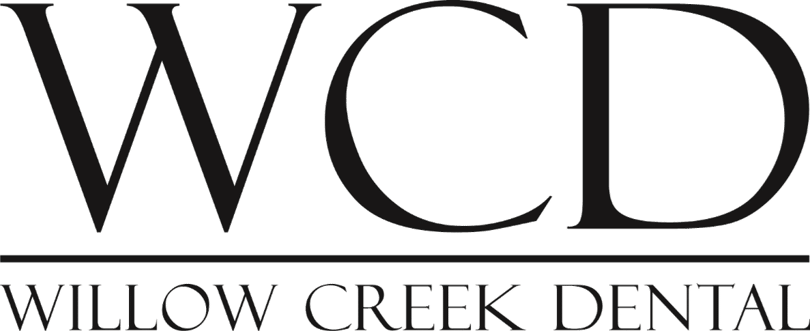Today, we know that good nutrition and oral health are closely aligned, but it wasn’t always that way. Some early 1900s dental products went against pretty much everything dental professionals of today stand for.
Take Greenland Studios “Whiskey Tooth Paste,” for instance. (Genuine 6-Proof Stuff!) The alcoholic toothpaste from yesteryear even encouraged you to “rinse with soda” when you were through.
We’ve come a long way in understanding the connection between good nutrition and oral health. In the following article, we’re going to teach you healthy eating habits that will fortify your teeth and gums. But first, let’s look a little further into the connection they share.
Connecting Dental Health and Nutrition
Eating is generally looked at as the activity that makes you have to brush your teeth. Even the best foods for oral health can be bad for your teeth if you’re using poor hygiene practices.
The American Dental Association tells you to brush a minimum of twice per day for a reason. Mainly, they know it’s a fool’s errand to advise more than that because 30% of people don’t even do that.
The reality is that people eat three to six times per day. By only brushing twice, they’re allowing more food to stay on their teeth for longer than dentists recommend. That creates a breeding ground for bacteria.
Bacteria attack the enamel, weaken the gums, and speed up the development of cavities. Eating foods that contain the proper amount of nutrients and vitamins can help guard against this even if you’re not brushing as often as you should.
What should you eat? Better yet, which behaviors should you engage in to maintain a strong and healthy connection between what you eat and your oral health? Here are seven suggestions.
1. Eat the Right Foods
The best thing you can do if you want to maintain good oral hygiene is to start with your diet. Load up on the good foods and eliminate the bad.
By “good” foods, we mean foods that deliver the proper calcium for bone and enamel health. Any foods rich in vitamins for strong teeth will do. Think cheese, leafy greens, and different forms of nuts (especially almonds).
You’ll also want to target proteins that are high in phosphorus. Fish and eggs are two great options.
Cranberries and teas (no sugar added) can keep your teeth smooth enough to give plaque no surface to cling to. Plaque buildup is a leading cause of gingivitis.
Beyond the foods that are good for you, learn which ones aren’t and avoid them like the plague. Sugary gums and most candies are among the guiltiest of culprits.
2. Choose the Best Meal Times
Think about when you’re eating. Most people eat something to start the day, in the middle of the day, and early evening. Others throw in a dessert just before bed.
Others eat smaller meals and keep snacking throughout the day. Any of these can work so long as you’re coordinating them with your hygiene schedule.
If you only brush once per day in the morning, you’ll have to deal with three meals of sugar buildup and food between your teeth until the next morning. That’s just asking for a cavity.
Twice per day isn’t much better if you’re eating a sugary snack before bed and after the second brushing. Be strategic about when you’re brushing, flossing, and using mouthwash. Don’t let your meal have the last word.
3. Closely Watch Macronutrients
Beyond the intake of vitamins for teeth and gums, you should also watch other macronutrients. Pay attention to four in particular. They are:
- Fiber grams: Most adult women should consume from 20 to 25 grams of fiber a day for good digestive health; men, 25-30 grams. Aside from digestive health, fiber helps keep you full and steers you away from those sugary snacks.
- Protein grams: If you’re a sedentary man or woman, you should eat around 0.36 grams per pound of body weight per day in protein. This will help you maintain feelings of fullness while preserving muscle over fat.
- Sugar grams: As few as possible should be your goal here. Added sugars to any food are hard on your body and bad for your teeth.
- Saturated fat grams: Your body needs saturated fats, but some people eat too many of them. The recommended amount for a sedentary person is around 13 grams per day, or 120 daily calories per 2,000 consumed.
To the last point, foods high in saturated fat can get lodged in your teeth. If you’re not flossing as you should, it can lead to bad breath and tooth decay.
4. Commit to Hygiene
Make an effort to brush and floss every day. Consider purchasing floss picks for added convenience, as well as leaving a tube of toothpaste and toothbrush at the office.
Sneak off to the restroom or take care of it in your car during lunch. There’s always an opportunity to care for your teeth. You just have to fit it into your schedule.
5. Avoid Restaurants
It’s not that you can’t get good food at restaurants. It’s just the temptation to eat poorly is so strong because, as the thought process goes, you want your money’s worth. For many of us, that means overeating.
It also means eating the wrong thing. And restaurants cook more for flavor than nutrition, so a dish you would normally eat at home thinking it’s healthy could have hundreds of more calories in additional fats and oils.
6. Drink Nutritiously
Here, we cover two things: what to drink and what not to drink. Of course, you should be drinking plenty of water each day. How much is the right amount?
We recommend one-half ounce per pound of bodyweight so that a 200-pound man is drinking 100 ounces per day. Water is great for thinning out foods and washing away bacteria. Drink it every chance you get.
With few exceptions, you should avoid alcohol and sodas. Both are high in sugars and acidic for your enamel and gums. Red wine is the only “safe” alcohol for dental health, and even then, you should use it in moderation.
Nutrition and Oral Health Are Inextricably Linked
Nutrition and oral health complement each other. Eating well pays dividends through a healthier smile, and your smile can often warn you about deficiencies in your nutrition and overall health.
Make sure your dental bill of health is a clean one. Contact Willow Creek Dental today if you need a checkup or cleaning, or if you’d just like to discuss some more dietary solutions for your dental health.




